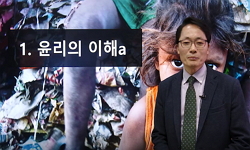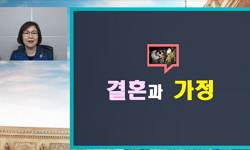조선시대 효제 담론은 흥미로운 이야깃거리로 인정받아 소설로 재현ㆍ재구성ㆍ재해석된다. 이러한 문화 지형에서 출현한 〈유효공선행록〉은 조선후기 이미 상식이 된 효제와 관련하여 철...
http://chineseinput.net/에서 pinyin(병음)방식으로 중국어를 변환할 수 있습니다.
변환된 중국어를 복사하여 사용하시면 됩니다.
- 中文 을 입력하시려면 zhongwen을 입력하시고 space를누르시면됩니다.
- 北京 을 입력하시려면 beijing을 입력하시고 space를 누르시면 됩니다.

〈유효공선행록〉의 孝悌 담론과 문제의식 = The Narrative of Filial Piety and Brotherly Love in Yuhyogongseonhaengrok
한글로보기https://www.riss.kr/link?id=A100151765
- 저자
- 발행기관
- 학술지명
- 권호사항
-
발행연도
2014
-
작성언어
Korean
-
주제어
유효공선행록 ; 창선감의록 ; 가족 윤리 ; 효 ; 우애 ; 절직효순 ; 효제 담론 ; 부자-형제갈등 ; 관계와 입장 ; 단명 서사 ; 종법제 운용 ; Yuhyogongseonhaengrok ; Changseongamyuirok ; Filial Piety ; Brotherly Love ; Relationships with Family ; To Die Young
-
등재정보
KCI등재
-
자료형태
학술저널
-
수록면
287-324(38쪽)
- 제공처
-
0
상세조회 -
0
다운로드
부가정보
국문 초록 (Abstract)
조선시대 효제 담론은 흥미로운 이야깃거리로 인정받아 소설로 재현ㆍ재구성ㆍ재해석된다. 이러한 문화 지형에서 출현한 〈유효공선행록〉은 조선후기 이미 상식이 된 효제와 관련하여 철학적 물음을 던진 작품이다. 작가는 등장인물의 관계망을 간결하게 설정하고, 서사를 남성 중심으로 기획하는 한편, 여성들 사이에서 발생하는 가문 내의 갈등을 소거함으로써 효제 문제를 초점화했다. 본고에서는 여전히 쟁점으로 남아 있는 효제 문제에 집중하여 텍스트의 내적 원리와 특징을 규명하고자 하였다.
이를 위해 본고에서는 유정경, 유연, 유홍 삼부자가 효제를 어떻게 이해하고 삶에 적용하고 있는지를 살펴 작품의 근간을 이루는 효제의 형상을 파악하였다. 이때 대상자 유정경과 유홍의 가족 윤리관 및 그에 수반되는 행동 양태를 보다 적극적으로 해석하여 유정경 삼부자의 관계 속에서 규정되고 있는 효제의 정체와 그것의 구성 맥락을 고찰하였다. 이를 통해 부자 및 형제 갈등의 배경과 원인, 그리고 효제 담론과 서사의 관련성을 찾을 수 있었다. 또한 유연의 효를 구성하는 절직효순의 원리를 풀어냄으로써 유홍의 개입이 사라진 이후에 부자(유정경: 유연)가 지속적으로 충돌하는 이유를 밝혔다. 끝으로, 효제와 계후 갈등을 주요한 쟁점으로 삼고 있는 〈창선감의록〉과 비교하여 작품의 고유한 미감을 파악하였다.
다국어 초록 (Multilingual Abstract)
Issues of filial piety and brotherly love were reproduced, reconstituted, and reinterpreted in the Chosen Dynasty as these were recognized as socially relevant themes of the time.Yuhyogongseonhaengrok, a novel written within this cultural background, ...
Issues of filial piety and brotherly love were reproduced, reconstituted, and reinterpreted in the Chosen Dynasty as these were recognized as socially relevant themes of the time.Yuhyogongseonhaengrok, a novel written within this cultural background, shows diverse perspective son filial duty, brotherly affection, and a clan code of those days. The writer simplified the relational net among characters and centered the narrative on the males while down playing other motives such as conflicts among women in the family in order to give prominence to the themes of filial piety and brotherly love.
While being understood as important themes, filial piety and brotherly love have raised continuous discussion questions about their meanings among scholars. This suggests that the contexts of the stories that addressed the themes were neither simple nor lacking nuance. However, relative less attention has been paid to the influence of interpersonal relationships among the Yu family members on interpretations of filial piety in the novel. The present study aims to address the nature and meanings of those themes by considering the eldest son, Hyuen Yu’s, relationship with his father, Jungkyung Yu, along with his relationship with his younger brother, Hong Yu, and ethics orientations and behaviors of the Yu family. In the second phase, this article tries to analyze in depth the significant meaning of the work by comparing it withChangseongamyuirok on the issues of filial duty, brotherly affection, and the clan code. The gist of our study is as follows.
The father and his oldest son experience conflict due to the difference in how they have internalized filial duty. The father regards filial duty as complete obedience while his eldest son embodies Confucius filial duty, such as being forthright when his father makes a mistake. On the contrary, the younger son has received his father’s affection by behaving in accordance with his father’s wishes. In addition, the younger brother thinks his elder as a disrupter, blocking his dreams despite the love his big brother has shown him. He has made wrong of the elder’s mind to beloved himand elder’s family ethics. Finally, He decided to kill himto achieve his desire. Yet even though the older brother knows his younger brother’s real intention, he consistently takes care of himand tries to minimize the family disputes. Meanwhile, the father drifts into the younger son’s plot to do harmto the elder. As a result, the relationship of the father and the elder son gets worse. In this way, the works shows that it is possible to make a harmonious family when filial piety interacts with brotherly love.
This work throws a philosophical question on the widespread ideologies regarding filial duty and brotherly love, even to the lowest class of people. The moral of the work is that filial piety and brotherly love are both needed to govern a family well, which is similar to what we find in Changseongamyuirok. However, the writer of Yuhyogongseonhaengrok has different techniques to portray the themes when compared to other novels. For example, the author ofChangseongamyuirok emphasizes the theme by showing directly the effective value of filial duty and brotherly love through the editing of the novel.
목차 (Table of Contents)
- 【국문초록】
- Ⅰ. 서론
- Ⅱ. 효제에 대한 인식과 태도의 차이
- Ⅲ. 효제 서사 전개에 깔린 문제의식
- Ⅳ. 결론
- 【국문초록】
- Ⅰ. 서론
- Ⅱ. 효제에 대한 인식과 태도의 차이
- Ⅲ. 효제 서사 전개에 깔린 문제의식
- Ⅳ. 결론
- 참고문헌
동일학술지(권/호) 다른 논문
-
- 우리문학회
- 신영명(Shin, Young-Myoung)
- 2014
- KCI등재
-
『朝鮮筆景』(Pen-picture of Old Korea(1912)) 소재 게일(J. S. Gale) 영역시조의 창작연원과 ‘내지인의 관점’
- 우리문학회
- 이상현(Lee Sang Hyun)
- 2014
- KCI등재
-
- 우리문학회
- 이화형(Lee, Hwa-Hyung)
- 2014
- KCI등재
-
- 우리문학회
- 조규익(Cho, Kyu-Ick)
- 2014
- KCI등재





 DBpia
DBpia






